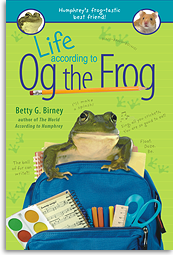

In Blanche, Donoghue gives full range to a woman who has made more sacrifices than she realizes to attain success. It’s a complex but gracefully handled structure that allows us to experience her month-long friendship with Jenny and the gory panic of Jenny’s murder simultaneously. (One newspaper headline screams: “Woman’s Mania for Wearing Male Attire Ends in Death.”)Įven more fascinating, though, is Blanche, who races through this propulsive tale along two different time tracks. Without ever defining herself as a lesbian, Jenny is clearly a sexual trespasser in the eyes of a culture that, tragically, is more alarmed by crossdressing than by child abuse or even murder. Some 30 different lyrics appear in the novel - all charmingly discussed in an appendix. Best of all, she’s got a song for every occasion. A friend to the downtrodden, she’s a fearless provocateur who plays with her own transgressive identity for ironic effect. (Yes, crossdressing isn’t the only taboo stripped bare in these pages.)Īnd then, of course, there are the two fantastic women at the center of this bloody story: You can feel Donoghue’s delight with 27-year-old Jenny, the gender-bending imp. Blanche’s finely dressed lover and his inseparable friend vacillate between wheedling and menacing, carousing about town before returning home drunk to exploit their patroness together.


The woman who owns the dance hall where Blanche performs exchanges flesh for gold as efficiently as a modern day trader. “Frog Music” keeps us captivated because Donoghue has filled the foreground and background of this wild tale with irresistibly vivid characters. But she can’t imagine what daggers are pointed at her new, pants-wearing girlfriend. Suddenly, her charming lover looks like a leech, and the arrangements he’s made to have their baby taken care of on a bucolic farm in the country sound deeply suspicious. As soon as Jenny starts asking impertinent questions, Blanche’s maison joyeuse shatters. Once Donoghue lights the fuse of this tightly compressed friendship, neither the homeless cross-dresser nor the tireless burlesque dancer realizes just how explosively their lives are about to change. “The fact is, Blanche hasn’t had so much fun with a stranger since - well, since leaving France.” “Blanche should just walk away, right now, from this gun-packing jester who’s caused her damage,” Donoghue writes, but something about the ridiculous, iconoclastic young woman delights her. They might have gone on abusing Blanche’s body and generosity indefinitely, but in the opening pages, she’s run over by Jenny Bonnet riding a gigantic bicycle. By dancing and whoring, she brings in enough to support her dandy lover and his equally dissipated friend, both ex-acrobats and now chronic gamblers. Recently arrived from France, she’s so successful in the flesh trade that she’s already bought her own apartment building. While “Room” held us with the precision of its cloistered voice, “Frog Music” entrances us with Blanche Beunon, a spirited prostitute whose life is about to be completely upended. Using contemporaneous newspaper articles about Jenny Bonnet, Donoghue has created a full-throated murder mystery, spiced with song and forbidden love. Donoghue notes that a journalist saw this description of the novel on Wikipedia and alerted her that someone must be playing a prank. Her story is based on the real-life shooting of a cocky cross-dresser who supported herself by supplying restaurants with frog legs. This is Victorian London with earthquakes and good Chinese food. The legal age for prostitution is 10, but that’s better than what goes on in the “schools” for delinquent children or on the flourishing baby market. Health officials have only tenuous control over a raging smallpox epidemic. Donoghue has the whole rambunctious city swarming through this book. The shaky city is aflame with crime, disease and racial violence, fueled by grotesque extremes of wealth and poverty. “ Frog Music” - her first historical novel set in America - takes us to San Francisco in the broiling summer of 1876. The millions of readers who know Donoghue only from the harrowing tale of that little boy will discover in “Frog Music” just how expansive and boisterous this Irish Canadian author can be. Emma Donoghue has broken out of her “Room.” Four years after that bestselling story of a mother and child imprisoned in a garden shed, she’s back with a novel ravenous for space, for people, for sounds - for all the life that 5-year-old Jack never had.


 0 kommentar(er)
0 kommentar(er)
